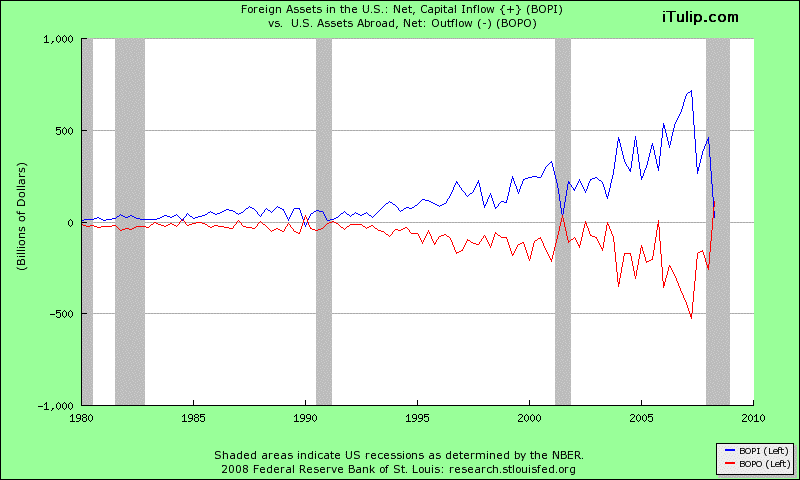Re: The US economy glides like a box of rocks. Don't stand under it - Eric Janszen
I have a couple of questions about the capital flow chart.
Isn't the rush to Tbills by foreign money a capital inflow?
How could capital inflows decline so much with so much money going into Tbills?
Where were the foreign capital investments in the U.S. and what are the signs that it is leaving?
If capital inflow is declining, and capital outflow is increasing, where is all the capital going and shouldn't this have caused a mass dumping of dollars to get to whatever foreign assets the capital is acquiring?
Can the data reflected in the Feds charts be trusted?
I have a couple of questions about the capital flow chart.
Isn't the rush to Tbills by foreign money a capital inflow?
How could capital inflows decline so much with so much money going into Tbills?
Where were the foreign capital investments in the U.S. and what are the signs that it is leaving?
If capital inflow is declining, and capital outflow is increasing, where is all the capital going and shouldn't this have caused a mass dumping of dollars to get to whatever foreign assets the capital is acquiring?
Can the data reflected in the Feds charts be trusted?



Comment